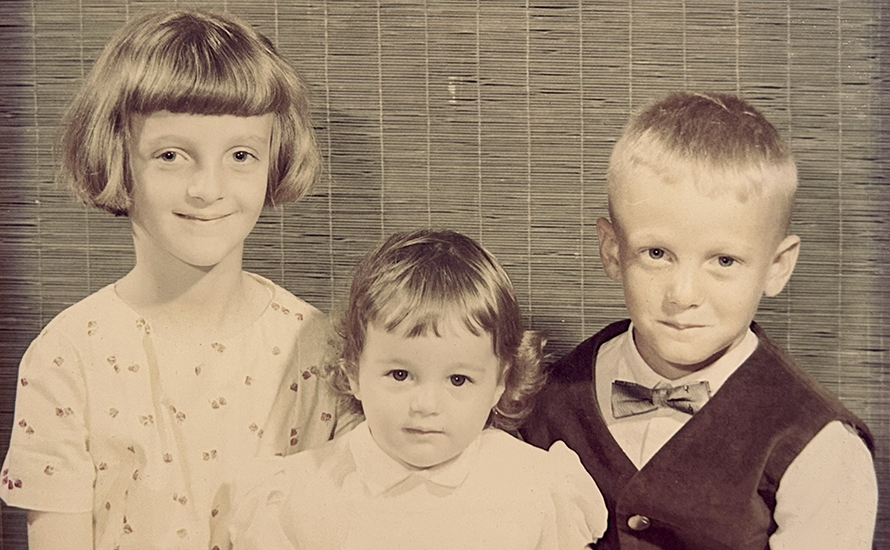We use cookies on this site to enhance your experience.
By selecting “Accept” and continuing to use this website, you consent to the use of cookies.
Search for academic programs, residence, tours and events and more.
Oct. 28, 2024
Print | PDFCynthia Comacchio, professor emerita in Wilfrid Laurier University’s Department of History, has been elected to the Fellowship of the Royal Society of Canada (RSC). Recognition by the RSC is the highest honour a scholar can achieve in the arts, sciences and social sciences.
Comacchio taught at Laurier from 1993 to 2022 and won two teaching awards during her tenure. Her research focuses on childhood, youth and social welfare. Comacchio examines how race, class, gender and age are important variables in both identity and social formation, mapping how the culture of childhood has changed across decades.
“In essence, it is the history of our country, starting from its very youngest citizens,” says Comacchio. “Age matters. It has always mattered and always will in positioning people in society. Societies tend to project their ideals and aspirations onto young people, so what a child ‘should be’ at any given time says a lot not just about the present, but about what we want Canada to be in the future.”
In her latest book, Ring Around the Maple: A Sociocultural History of Children and Childhoods in Canada, 19th and 20th Centuries, Comacchio and her co-author and mentor Neil Sutherland trace the condition of children in Canada from roughly 1850 to 2000, a time when modernity increasingly disrupted traditional norms. Notable shifts included the growing importance of media and more solitary, indoor play.
“There’s a propensity to think of the 1950s as a golden age of childhood,” says Comacchio. “One thing I can say for certain is that historians are not nostalgic. We know only too well that there never was a golden age of childhood or anything else. There were good things back then, there were bad things back then, and the same is true now.”
“In essence, it is the history of our country, starting from its very youngest citizens."
Much of Comacchio’s research involves looking “beneath the surface” at how class, racial, regional and religious differences impact the experience of childhood.
“The experience isn’t the same for every child,” says Comacchio. “That’s where history, as opposed to nostalgia, provides a much clearer picture. We need to know about the oppression of Indigenous children because that’s a problem that persists. It is generational and we need to do better. We can only do that by knowing the past as it was, not as we would like it to have been.”
Ring Around the Maple is the fourth book in Comacchio’s prolific career, which also includes three edited collections and 31 articles. Her earlier books include 2008’s The Dominion of Youth: Adolescence and the Making of Modern Canada, 1920 to 1950, which won a Founders Prize from the Canadian History of Education Association; 1999’s The Infinite Bonds of Family: Domesticity in Canada, 1850-1940; and 1993’s Nations are Built of Babies: Saving Ontario’s Mothers and Children, 1900-1940. She is currently writing about the long-term impacts of war on veterans’ wives and children.
“Cynthia’s election into the Royal Society of Canada is a remarkable recognition of her contributions to the study of the history of children and childhood,” says Deborah MacLatchy, Laurier president and vice-chancellor. “I am immensely proud to see a Laurier scholar receive this prestigious honour, which reflects the excellence in research and teaching at our university.”

Comacchio as a child with her siblings
Comacchio calls her RSC election a “personal triumph” given her humble roots. The daughter of working-class Italian immigrants, she was the first Canadian-born member of her family to attend university. Comacchio was initially inspired to study history by listening to her parents’ stories from the Second World War and their subsequent immigration.
“There were happy stories and traumatic stories, and I was fascinated by them,” she recalls. “I didn’t realize it at the time, but my parents weren’t just telling stories of their own lives. They were telling the stories of a generation who went through a historic experience together and came out with a collective consciousness.”
After decades of listening to, collecting and recording other people’s childhood memories, Comacchio’s own are top of mind as she celebrates her latest honour.
“I only wish my parents were here to experience it with me because they would be so thrilled,” says Comacchio. “It means a lot to me, but it would mean so very much to them.”